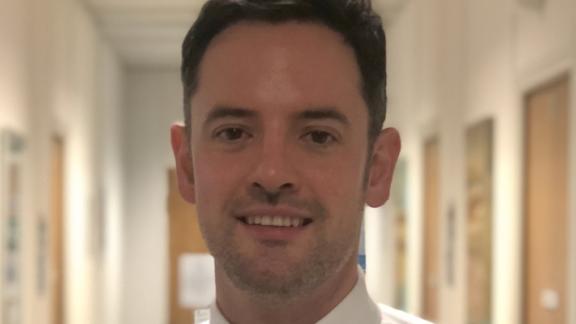GP Contract changes 2023/24: what you need to know

Summary
On 6 March 2023, NHS England published an overview of changes to the GP Contract for 2023/24, the final year of Investment and Evolution: a five year framework for reform of the GP Contract to implement the Long Term Plan.
The changes fall into four categories:
- access
- performance-based funding (IIF and QOF)
- workforce flexibilities
- immunisations and vaccinations.
1. Access
- Practices cannot request that patients contact them at a later date. Instead, patients should be offered an assessment of need or sign-posted to an appropriate service at first contact.
- Future online record access will be offered to all patients by 31 October 2023.
- The cloud-based telephone (CBT) National Framework will be mandatory and only cloud-based solutions will be supported by the end of 2025.
- Practices must procure their telephony solutions through the Better Purchasing Framework when their current contracts expire.
- The Enhanced Access requirements will be reviewed in 2024 following conversations with PCNs and urgent and emergency care.
2. Performance-based funding
Investment and Impact Fund (IIF)
- Five indicators (down from 36) worth £59 million
- These indicators will target flu vaccinations, learning disability health checks, early cancer diagnosis, and two-week access targets.
- The remainder of the IIF (worth £246 million) will target access and patient experience
- 70 per cent of total funding (£172.2 million) will be paid monthly as part of the Capacity and Access Support payment to PCNs.
- PCNs will need to agree an access improvement plan with commissioners in Q1 of 2023/24. The remaining 30 per cent of the total funding (£73.8 million) paid at the end of March 2024 following an assessment of the improvements promised in the plan and what was delivered to patients.
- Guidance on this assessment will be provided to ICBs by NHSE.
Quality and Outcomes Framework
- £97 million in funding to be released to practices by reducing from 74 to 55 indicators.
- All register indicators will be income protected and payments will be made monthly.
- New indicators include:
- 2 cholesterol indicators worth 30 points (approximately £36 million)
- New overarching mental health indicator.
- Replacement of indicator AF007, concerning atrial fibrillation.
- 2023/24 QI modules emphasise the use of data, workforce and partnering with local services to improve workforce wellbeing and balancing demand and capacity.
- Consultation on the future form and suitability of QOF will be undertaken in 2024/25.
3. ARRS workforce flexibility
- New ARRS roles
- Advanced Clinical Practitioner Nurses will be included in the ARRS as advanced practitioners.
- Apprentice Physician Associate.
- The cap on advanced practitioners will be raised to 3 per PCN under 99,999 patient population and raised to 6 for larger PCNs.
- The cap on Mental Health Practitioners will be removed.
- The contract will also clarify that they can support some first contact activity.
- Time spent away from practice, in education and training, will be reimbursable for First Contact Practitioners.
- Advanced Practice Pharmacists will be confirmed as able to supervise Clinical
- Pharmacists.
- Staff employed through the ARRS scheme will be considered part of the core general practice cost base beyond 2023/24. General practice is encouraged to offer permanent contracts where appropriate and continue to recruit into ARRS roles.
4. Immunisations and vaccines
- Changes to childhood vaccines:
- The 'clawback' vaccination and immunisations repayment mechanism for practice performance below 80% coverage for routine childhood programmes will be removed.
- QOF indicator thresholds to be changed to 81-89 per cent for the lower threshold and 96 per cent for the upper. This will see fewer practices receiving no payments across the 3 indicators.
- A new Personalised Care Adjustment will also be introduced for patients registering late.
The routine vaccination schedule for Human Papillomavirus and Shingles will be changed.
Analysis
Given the increase in demand for NHS services across the board, the contract’s focus on access is expected while the reductions in Investment and Impact Fund (IIF) and the Quality and Outcomes Framework (QOF) indicators, as well as increased workforce flexibilities, are all welcome developments. Yet, although the contract clearly attempts to free up clinician time for patient care, it does little to address the challenging context that practices and primary care networks (PCNs) are operating within.
As outlined in PCNs: Three Years On, the years since Investment and Evolution was introduced have been marred by extraordinary events, which cannot be ignored. This includes the effects of inflation on practices and PCNs, the pandemic’s effects on patient demand and GP numbers, as well as the significant structural changes with the statutory introduction of system-working through integrated care boards (ICBs). We therefore welcome the focus on access and await publication of the Delivery Plan for Recovering Access to Primary Care and any support it may provide to take account of this context and then underlying factors affecting patient access.
We welcome the increased flexibilities within the ARRS and the explicit re-commitment to their funding beyond 2024
This is the final year of Investment and Evolution, which set out how PCNs are the building blocks of integrated care systems and brought much-needed investment to primary care. However, the significant events in recent years have had a destabilising effect on primary care; there are now almost 850 fewer GPs than in December 2019 and there is increased demand from patients with increasingly complex needs in the aftermath of the pandemic, whether they are initially presenting with mental or physical health needs or being managed by primary care while they wait for treatment elsewhere. Unsurprisingly, the effect of the last few years is not unique to primary care and the full benefits of system working are yet to be realised.
We urge the government to consider further mechanisms for attracting and retaining GPs
Despite this challenging context, primary care has risen to the occasion. General practice is an outlier within the NHS; it is now treating more patients than it did pre-pandemic, but accessing services remains an issue for many patients – as it does for other NHS providers. Therefore, the focus on access and freeing clinician time via reducing QOF and IIF indicators, as well as not introducing anymore service specifications, is rightly placed. We also welcome the increased flexibilities within the ARRS and the explicit re-commitment to their funding beyond 2024.
However, these developments do not address the underlying factors affecting capacity, whether these be supply or demand side. Supply-side, the shortage of GPs and optimal deployment of ARRS staff affect capacity. We therefore urge the government to consider further mechanisms for attracting and retaining GPs – including into partnership – as well as how PCNs can be supported to supervise their ARRS professionals and ensure they are used in an optimal way for practices and the wider system, such as by ensuring ICBs set aside a portion of system development funding (SDF) for PCNs
The contract also does little to address the long-term issues affecting demand. PCNs were created to help tackle health inequalities, provide personalised care and aid prevention, yet the two-week target and the realignment of funding around access (as mainly measured by appointment activity), risks diverting efforts away from prevention and the strategic objectives of ICSs, as well as undoing the progress PCNs have made on population health management. It is therefore imperative that health inequalities funding reaches the primary care frontline, and we urge government to instruct ICBs on this matter.
Although confirmation is required around total funding, there has been no change to the annual increase to GP practice funding as set out in the 2019 framework, which remains at 2.7 per cent against a rate of 10.7 per cent inflation for the UK in 2022. The 2019 Contract Framework afforded a 2.5 per cent annual increase for the 2022/23 financial year. This is clearly below inflation and, with practices already feeling the effects of increased costs, members are concerned about their financial positions when all other bills are increasing at inflationary rates.
We must also ensure that primary care staff pay keeps pace with system partners’ and that there is sufficient capital investment to improve primary care infrastructure, including technology and estates. We therefore hope the Delivery Plan for Recovering Primary Care Access and the full contract clarify matters, ensuring inflation does not erode overall funding for primary care and that it is well-quipped to fulfil the stipulations of the contract.
The ambitions and spirit of the Five Year Framework are laudable, pivoting the health service to focus on prevention and tackling health inequalities through concrete services within primary care that were fairly funded and negotiated. We therefore hope that ICBs and government return to this approach. The whole health and care system is struggling to meet demand and it is vital that parties collaborate and work in partnership to improve patient outcomes.



